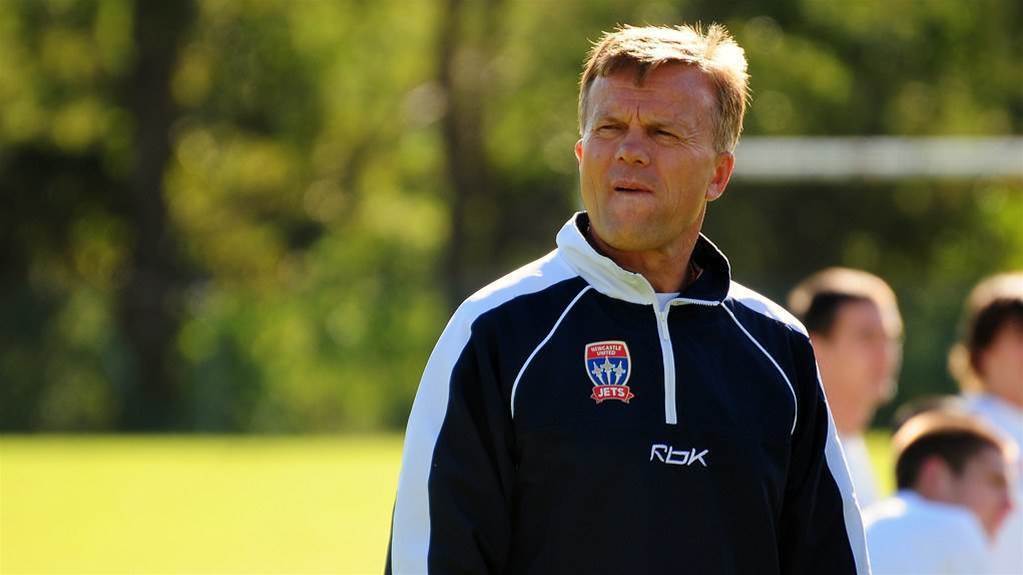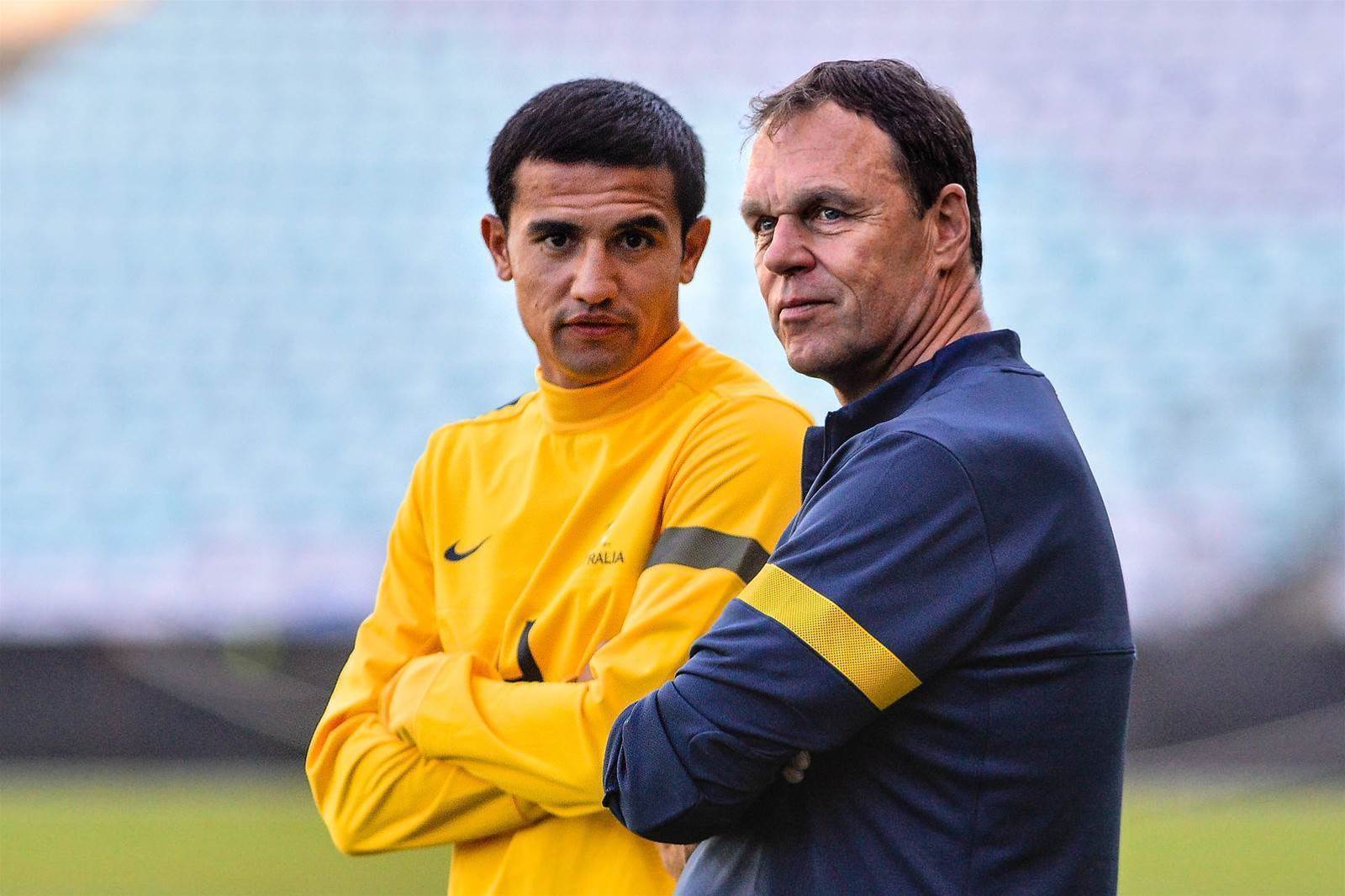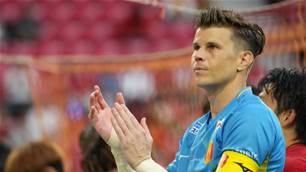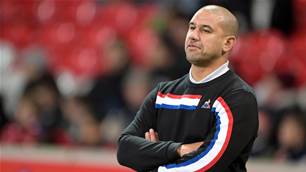With a glut of new managers taking charge this new A-League season, the inevitable question waiting to be answered is: Who will be first to be sacked?!
Six teams have new bosses at the helm, and three more are only in their second season with their clubs - making Ernie Merrick the current longest-serving A-League coach after just two years with Newcastle Jets.
The rapid turnover of coaches has meant Australian football has seen a series of shock exits over the 14 years of the A-League era - here are the best of them.

BRANKO CULINA
In terms of drama, it’s hard to top Branko’s swift and sudden sacking by Newcastle Jets in 2011.
On the morning of October 4, he was the smiling face of the Jets at the launch of the A-League, four days out from the start of the new season. Minutes later, he was called back to Newcastle and sacked on the spot that afternoon by maverick owner Nathan Tinkler.
It was a breathtaking turnaround for the former Sydney FC and Sydney United coach who had been hired on an initial two year deal in 2009 and then had his contract extended until 2015 when Tinkler took over.
But it all started to fall apart when Culina hired his Socceroo son Jason as a marquee on a three year deal – only for the club to find out he had a potentially career-ending knee injury with doubts about it being covered by insurance as they claimed it may have been pre-existing when he signed.
Jason never played for the Jets – and only played eight more games in his career, two years later at Sydney FC – and his dad took the fall as Tinkler tried to get the big bucks marquee contract scrapped by the FFA, while Gary van Egmond returned to take charge in Culina’s absence.

HOLGER OSIECK
It hasn't just been the A-League playing hardball with coaches either – the FFA acted without hesitation against dour German Holger Osieck when his stint with the Socceroos soured.
Despite qualifying for Brazil 2014, albeit with lacklustre results, Osieck’s tactics and squad selection was on the nose. Grimly reliant on the fading stars of the now-ageing Golden Generation, Oseick’s brand of football was increasing loathed by fans and pundits.
With the next gen frozen out and a group stage exit in Brazil looking as good as guaranteed, the FFA effectively set Osieck an impossible task to highlight his shortcomings…and organised back to back friendlies against Brazil and France.
The match in Brasilia in September 2013 ended 6-0. The match in Paris the following month also ended 6-0. Holger’s career in management ended immediately. He’s never coached another team since.
Ange Postecoglou was immediately installed in his place (much to Melbourne Victory’s forced-smile ire) and the Golden Generation became the old generation, replaced by the new. We still exited at the group stage of Brazil 2014 without a win though.

TONY POPOVIC
It’s not always clubs and football associations delivering the hammer blow though. Popa’s decision to walk out on Western Sydney Wanderers on the eve of the new season in 2017 was a dagger to the hearts of fans and the club he helped found.
After taking the A-League new boys to the Premiership and being crowned Champions of Asia, Popovic regrouped in the 2017 off-season with a bag of new signings for the new season.
Despite all the success he’d enjoyed with the Wanderers since taking charge in 2012, every approach from overseas clubs had been rebuffed, even including a possible return to the UK and Crystal Palace.
And then troubled Turkish side Karabükspor came knocking…and for reasons still only really known to Popa, he answered. Just a week out from the start of the new season, Popa took his WSW coaching staff and jumped on a plane to Turkey, leaving his old club in the lurch.
Fairly quickly though, it all started to go wrong in Turkey with his new club’s fractured ownership and unrealistic expectations. After nine games in the Super Lig, he was sacked. The club have since been relegated every season and now play in the Turkish third tier.
Popa eventually returned to the A-League last season and won the Premiership at his first attempt with Perth Glory, narrowly missing out on the double in a Grand Final penalty shoot out against Sydney FC. WSW meanwhile are still looking to find their old winning ways from Popa’s days.

ALEN STAJCIC
The drama is not just confined to men’s football. Alen Stajcic’s sudden sacking as Matildas’ coach at the start of this year was arguably one of the most controversial of all.
In mid-December Stajcic was weighing up training bases for the Matildas at the France 2019 World Cup. He appeared alongside CEO David Gallop and Socceroos coach Graham Arnold at the launch of the new FFA logo and then flew out to Paris for the World Cup draw.
Behind the scenes though, the wheels were in motion to sack him days later.
Just after New Year he got a call to meet with Gallop and the FFA’s lawyer to discuss the findings of player surveys. Stajcic had already set up a workshop later in the month to discuss the findings with players.
By the time the meeting with Gallop ended, Stajcic was effectively sacked. He only found out the following day – but the press had already been tipped off he was out.
An ever-changing and vague FFA narrative on the reasons for the sacking ensured the story stayed in the headlines, fuelled also by comments made on social media by the newly-elected deputy FFA chair Heather Reid, for which she later issued a public apology and stood down from her post on health grounds.
On the eve of the women’s World Cup kicking off, the FFA also apologised to Stajcic, now Central Coast Mariners coach, and paid him a lump sum in compensation. Tony Popovic’s former sidekick at Western Sydney Wanderers, Ante Milicic, took Stajcic’s spot on the Matildas bench in France but the team once touted as potential world champions exited at the round of 16.

STEVE McMAHON
The former Liverpool legend’s time at Perth Glory established an A-League truism that still holds true today, 14 years later: Play your own kids in your own team at your own peril.
McMahon had years of coaching experience under his belt when he arrived in Australia for the first year of the A-League, having previously managed Swindon Town and Blackpool for four year spells each.
He brought his son Steve McMahon Jr with him too as a new signing, a former Blackpool defender with 18 games for the Tangerines under his belt.
Perth Glory ended both their careers.
Within a few months of the A-League starting, they were run out of town by fans and a rumoured player revolt over recruitment, strategy and coaching style.
McMahon Jr, still only 35 now, never played as a pro again, and McMahon Snr never coached again. It’s probably for the best…
Despite that, the experience didn’t seem to inhibit later Glory coach Ali Edwards from signing his two sons to the club…and unrest over that ultimately helped bring about his downfall at Glory.
Current coach Tony Popovic also has his two sons now signed with Glory - who were allegedly played at the expense of former striker hero Andy Keogh in pre-season, pre-empting his move to the Middle East.

MIRON BLEIBERG
As the song says, you gotta know when to hold them, you gotta know when to fold them and you gotta know when to walk away.
And wildcard coach Miron Bleiberg knew the writing was on the wall for him when Gold Coast United owner Clive Palmer appointed a 17 year old as club captain on his A-League debut…
It was the end of days for Gold Coast United – a project which had offered so much hope but never came close to realising it.
Built on bling, swagger and big-name signings, the club did everything right except engage any fans, which wasn’t helped when Palmer closed down half the stadium for home games.
When Palmer decided to go to war with the FFA over licence fees and rules, it all just got a bit…silly. Palmer wanted to put take off his club's sponsor logo and replace it with slogans about political free speech while threatening to sue everyone and anyone.
The final straw came when Palmer appointed 17 year old Mitch Cooper as skipper on his senior debut against Melbourne Heart.
Bleiberg tried to put a spin on it that it would be purely ceremonial and Kristian Rees would be performing the captain’s role but without the armband – and Palmer then suspended Miron for his comments, insisting Cooper would be the real captain.
The Sunday after the match, Bleiberg walked out on the club and the A-League, never to return. Ten days later, the FFA revoked Gold Coast United’s A-League licence, effectively sacking Palmer, and ending Gold Coast’s A-League era.

Nick Theodorakopoulos
Nick Theodorakopoulos’s exit was less of a surprise than the turnaround and success of the man who replaced him, Gary van Egmond.
Nick T stepped in for English coach Richard Money who had a middling one season stint with the Jets, taking them to a spot in the finals in the debut year of the A-League and earning the man dubbed Dickie Dosh a return to the UK as boss of Walsall.
Nick T, however, did not have such a good record. As newly-installed Jets coach, he lost all his Pre-Season Cup games and a didn’t win a single one of his opening seven A-League games, despite having had a full off-season with the squad.
After the last loss, former Jets owner Con Constantine pulled the trigger and fired him.
Assistant coach van Egmond took over as caretaker – and immediately went on a winning streak with the very same squad which had failed so dismally at the start of the season.
After looking like dead certs for the wooden spoon, van Egmond’s record for the next 14 games was eight wins, three draws and just three losses, earning a spot in the finals and setting the foundation for the Jets’ Championship-winning season the following year.
Meanwhile Nick T went on to have one season as coach at Sydney Olympic in 2009 before backing out of the coaching game for good.

IAN CROOK
Making the step up from being an assistant coach to head coach at the same club is a near impossible task, and the landscape of the A-League and beyond is littered with the career wreckage of those who have tried.
But for Ian Crook it was even harder than usual.
Not only did he have to replace Sydney’s successful and popular Czech manager Vitezslav Lavicka, the club had recruited a genuine world-class superstar for him to coach.
The addition of Alessandro Del Piero to the Sky Blues’ roster brought the eyes of the world on Sydney FC and their inexperienced coach. It was an impossibly heavy burden for the former Norwich City nice guy to shoulder.
A thumping 7-2 loss to Central Coast Mariners sent alarm bells ringing and a 3-2 defeat at home to Melbourne Victory proved the final straw just six rounds into the 2012/13 season.
Crooky put up his hands and admitted he wasn’t ready for the role and made way for someone more experienced to take charge of Sydney and the circus surrounding Del Piero.
Frank Farina was eventually given the job, but he too struggled to gel the skills and demands of ADP with the rest of the squad – and the potential the star signing offered went largely unrealised as a result, with Sydney missing out on the finals, despite ADP’s 14 goal haul.

PIERRE LITTBARSKI
The German World Cup hero led a bling-tastic Sydney FC to an A-League Championship in the competition’s first season…and promptly headed straight for the exit.
Sydney threw everything at the 2005/6 opening season of the A-League with Dwight Yorke ensuring they made headlines at home and abroad and Littbarski’s German savvy translating it into success on the park.
But the hangover after the long, late-night celebratory post-Grand Final party at Sydney’s Star Casino meant chairman Walter Bugno had to do some cold-hearted calculations for the coming season…and Littbarski’s reported $700k salary was one of the key items on the agenda for cost-cutting after a season which saw the club run up a reported $6m loss.
When Littbarski turned down a reduced salary, it led to the first exit of an A-League trophy winner before they could defend their title.
Littbarski clearly needed all the cash he could get though - his furious daughter back in Germany put all his old club memorabilia up for sale on eBay over unpaid pocket money… and even included semi-naked pics of herself into the bargain.
Meanwhile Sydney replaced the German with former England hero Terry Butcher, who seemed to spend more time in Vintage Cellars in Double Bay than on the training pitch, but amazingly held onto his job all the way through Sydney’s disappointing second season before finally getting the arse.

JOHN KOSMINA
The former Socceroo has to go down as one of the most successful managers to be forced out his job in A-League history…but boy, did he go out in a blaze of glory!
In four years of bossing Adelaide United from their pre-A-League incarnation in 2003 through to the new national top tier, he took the Reds to the Premiership in the debut season of the A-League.
He backed it up with a second place finish on the ladder the following season and a spot in the Grand Final, only to be thrashed 6-0 by Melbourne Victory in a fractious match that ended in ugly scenes and even uglier sportsmanship by the losing side.
Combined with the now infamous pitchside throttling of Victory skipper Kevin Muscat after the two collided on the sidelines, Kosmina’s position was considered untenable and he was pressured to quit the side.
The scene of him clashing with Muscat will forever be one of the defining moments of the A-League though, and that’s a helluva legacy to leave behind!

JOSEP GOMBAU
His knee slides were legendary, as were his Awer Mabil hugs, while press conferences and interviews were an absolute nightmare for journalists trying to decipher that distinctive Spanish brogue - all the words were correct and the English was good when you could make it out…but it was just so deeply hidden within that accent that it was almost impenetrable.
Yet Josep Gombau proved an inspiration at Adelaide United. A product of Barcelona’s coaching academy, he brought a touch of Messi to the A-League and the key signings of Sergio Cirio and Isaias Sanchez proved influential long after he left.
His first season was a fight against the naysayers as he introduced possession-based football to the Reds and an insistence to play it out from the back, despite a run of losses at the start of the season. He eventually turned things around though and scraped into the finals.
The following season though he had won over the fans, if not the local press, and his brand of coaching was hailed as the future of Australian football, earning him the coaching gig for the A-League All-Stars against Juventus in 2014.
After finishing third in the A-League, winning the FFA Cup and making it to the semis of the finals, Gombau’s star was shining bright…only for him to unexpectedly call a shock press conference in mid July 2015 to announce he was quitting.
He said he was headed for an academy coaching position in the US - with the suggestion it was with City Football Group in New York, although that never appeared to eventuate.
A year later he returned, much thinner, as coach of the Olyroos and Ange Postecoglou’s assistant with the Socceroos. The following year he joined Western Sydney Wanderers as head coach and no-one ever spoke kindly of him again….

MARK RUDAN
For some, the writing was on the wall from the middle of the season.
Mark Rudan’s debut season as an A-League coach in 2018/19 had been a rousing success, milking some incredible performances out of an apparently mediocre side including players that many other more experienced coaches had tried to get the best out of – and failed.
But Sydney FC’s former Big Blue Man Rudan had a Midas touch at Phoenix. He quickly had the side playing well both individually and as a unit. The future looked bright and the next year would only see them get better.
The expansion of the A-League with two new clubs didn’t seem to be a cause for concern – the arrival of Macarthur FC, the third Sydney side, had been delayed a year, while Rudan had no Melbourne connections to make Western United appear a threat.
From January though, the warning signs were there. Rudan began to talk about broken promises from Phoenix’s owners. About missing his family. About being too far from home when his kids were growing up.
To be fair, he made no secret of it. For some fans, it looked like a concern for the club to address. For others, it looked like an exit strategy.
It was.
Finally after months of speculation, Rudan confirmed he would not be returning next season, and a month later, after the Phoenix end of season awards night, he confirmed he would be the inaugural coach of A-League new boys Western United.
As the church signs say, Phoenix fans shouldn’t cry because it’s over, but be happy it happened. And maybe a little bit disappointed it had to end the way it did…because it really did feel it all ended too soon.

ANGE POSTECOGLOU
The truth may never be known about exactly what happened with Ange and the Socceroos, but he’s no stranger to shock exits.
He left the role of Young Socceroos coach after a bruising on air row with Craig Foster over the team’s fortunes in 2007. He resurrected his managerial career at Brisbane Roar in 2009 and led a brutal clear out of the playing stocks to reimagine it in his own vision, bringing the club’s greatest period of success ever.
In the midst of all that though, straight after another Grand Final victory, Postecoglou quit the club in 2012. Two days later he was unveiled as Victory’s new coach. After just one season though, he was headhunted by the FFA to take the Socceroos to the 2014 World Cup.
His time at the Socceroos brought mixed fortunes and mixed reactions. He again culled the ageing players from the squad and brought in a string of youngsters for the trip to Brazil. He instigated his distinctive playing style which won praise from fans and critics, despite conceding nine goals in three World Cup matches.
Although it was acknowledged he was working with limited or unrealised quality among his new young playing group, Postecoglou managed to eke out results and took the Asian Cup on home territory in 2015.
But the limitations to the squad choice became apparent during World Cup qualifying for Russia 2018 and results became harder and harder to come by as Ange tried more and more desperate measures to find the back of the net.
The switch to a back three at a crucial stage of qualifying sparked the beginning of the end of Australia’s love affair with Ange. By focusing on creating more chances for the forwards, Ange sacrificed his defensive strength - goals conceded went up, goals scored stayed the same.
The pressure on Postecoglou intensified from fans and pundits and from within the FFA. With his future uncertain, Australia ended up taking the longest possible route to Russia via two extra sets of play-offs before finally guaranteeing their spot.
But with the pressure released, Postecoglou announced he would not be on the bench in Russia and was quitting on the eve of the World Cup.

While many insist he was forced out as part of a conspiracy to make way for Graham Arnold or as collateral damage in the governance battle between the FFA and A-League clubs, the baton was actually handed to Bert Van Marwijk to take the team to Russia and allow Arnold to see out the A-League season with Sydney before taking charge in time for the Asian Cup.
One day the full story may come out - but in the meantime, Ange is proving his credentials all over again in Japan where he’s turned around the fortunes of Yokohama F Marinos for City Football Group. New York City FC or Manchester City next for the big fella? There’s certainly a few shocks still to come from Ange, for sure…

HAT-TIPS TO…
Jim Magilton - The worst coach in Victory history with a 16.67% win rate.
Hesterine De Reus - Don’t demand pro commitment from Matildas if you can’t offer pro conditions.
Mike Mulvey - Dumped by Roar with the double still warm in his hands.
Rini Coolen - Four year deals mean nothing if you can’t scout decent players.
Frank Farina - Needed a Plan B.
Kevin Muscat - The A-League without Muscat is a shock in itself.
Related Articles
.jpeg&h=172&w=306&c=1&s=1)
Socceroos prodigy returns to A-League after horror run

Star keeper's exit heralds hero's return at A-League giant














